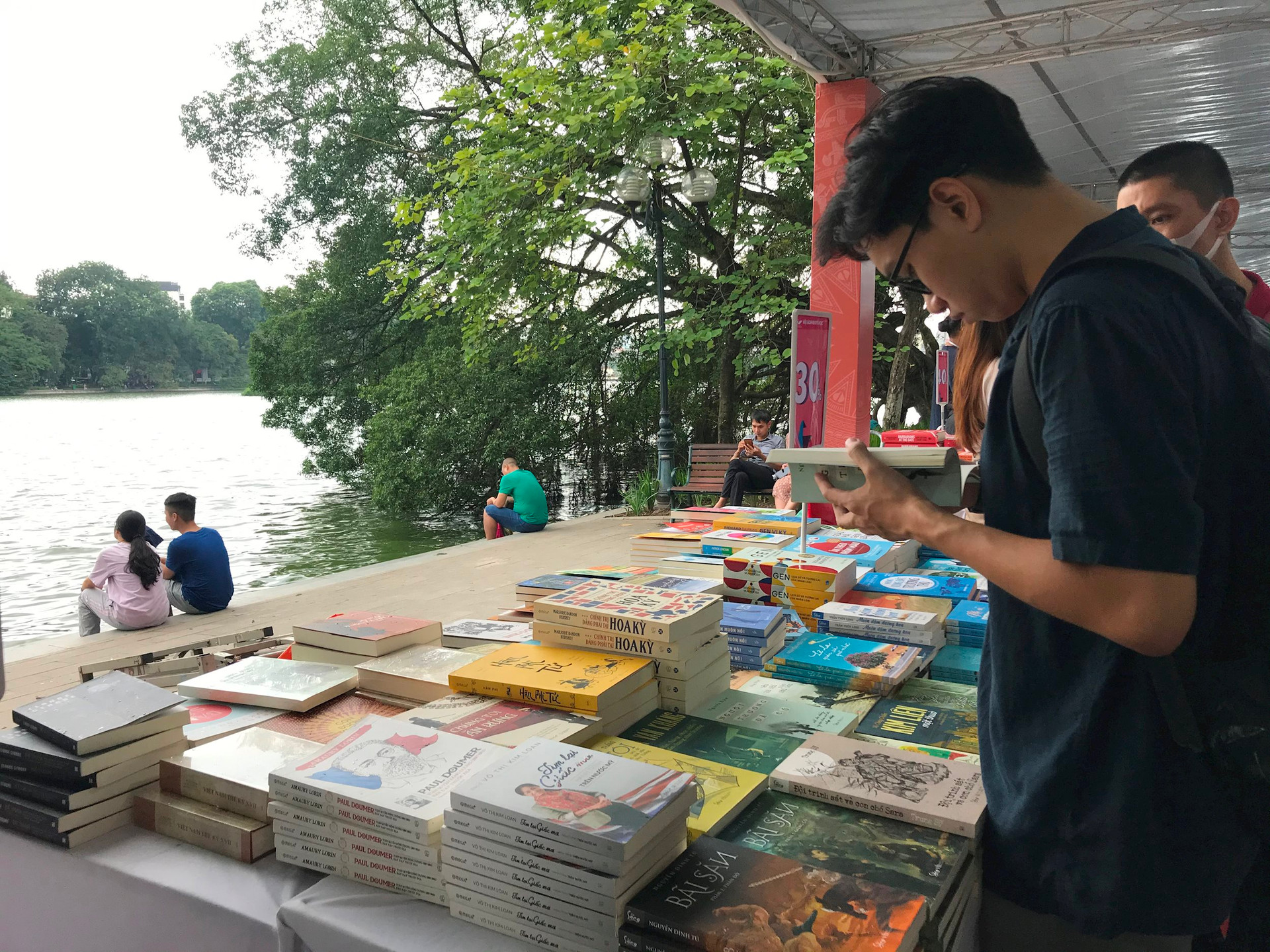
In particular, this year’s Vietnam Book and Reading Culture Day is closely linked to digital transformation, with the goal of bringing books to more readers. This is also an opportunity to once again raise the question, what to do to “encourage reading” in the digital age?
A statistic that has been recently published is that only 30% of Vietnamese people read books regularly, 26% do not read books and 44% read books occasionally. Another statistic shows that textbooks and school reference books currently account for 80% of the number of books on the market. If we put these two types of books aside and divide the rest evenly among the population, on average each Vietnamese person reads about 1.2 books/year.
Meanwhile, according to statistics, in Vietnam there are 77.93 million Internet users, reaching 79.1%. With the age group from 16-64, accounting for about 79% of the population, it shows that each Vietnamese person spends 6 hours and 23 minutes using the Internet every day. In addition, the number of social network users also reached 70 million, equivalent to 71% of the total population.
These figures show that the number of Internet and social media users is increasing, and getting younger. Meanwhile, the number of people reading traditional books is “very modest”, if not very small. Looking at other countries, such as France and Japan, on average each person reads 20 books/year; Singaporeans read 14 books/year, Malaysians read 10 books/year…
The benefits of the Internet are undeniable. But it is also undeniable that "digital life" is affecting and destroying the habit and need for reading in many people, especially young people who do not have the habit of reading, and lack reading skills. Notably, some studies have shown that exposure to technology devices too early can negatively affect children's development. The brains of young children, especially those aged 5-10, are still in the process of being perfected, not ready to process a large amount of information quickly and continuously as provided by the online environment.
Therefore, the issue of encouraging Vietnamese people to build and nurture the habit of reading is something that needs attention. Especially encouraging young people in general, and students in particular, to maintain the habit of reading.
According to Dr. Nguyen Quoc Vuong - who has translated and written over 70 books oneducation , history and culture, society is changing more and more rapidly, making the knowledge learned in school quickly become outdated and requiring the ability to adapt quickly and respond flexibly in life.
Therefore, self-study and lifelong learning become the survival activities of modern people. Reading books will therefore be the most basic method to help individuals self-study and lifelong learning.
However, in reality, the implementation of "reading promotion" activities is currently facing many difficulties. Dr. Nguyen Quoc Vuong said that although the public library system has been rebuilt spaciously and beautifully, it is always in a state of lack of operating funds and lack of readers who come to read and borrow regularly. Village cultural houses and community learning centers do not have proper and effectively operating libraries. Even in schools where books should be read the most and most often, many schools only have "libraries" that exist in name. Books in school libraries are only old textbooks, reference books for lesson preparation, often closed, and there are no reading promotion activities...
Culturalists and education experts all agree that building a reading habit for young people needs to be trained from a young age, and maintained throughout their time in school. In addition, the culture, information and education sector must make efforts to turn reading promotion activities from a "movement" into a reality, into a regular, daily work content. In particular, the State needs to continue to perfect macro policies to promote reading promotion so that "reading culture" becomes a "community standard".
Dr. Nguyen Manh Hung - CEO of Thai Ha Books also pointed out the fact that Vietnam does not have reading classes. "No school has opened a reading class. Secondary schools only teach spelling. About 20 years ago, I was one of the first people to teach speed reading and we published a book guide," shared this expert who is very passionate about books and has launched a "reading promotion" movement, and said that he has worked with the Ministry of Education and Training to propose reading classes. However, the first problem is the need to train teachers. Next, if we want young people to read a lot, adults must set an example. However, many adults are setting an example with beer, wine, fashion , food and drink... Moreover, even many teachers do not have a good bookshelf. If parents do not read books when they come home, how can they train their children to read? "The only skill that must be learned in the 21st century is self-study, and the best way to self-study is to read," Mr. Hung emphasized.
Meanwhile, Dr. Nguyen Quoc Vuong proposed that there is a need for strong and substantial educational reform so that learning is closely linked to and based on the foundation of reading. It is necessary to boldly recognize the autonomy of teachers and schools in developing learning content and choosing methods to guide students.
On that basis, teachers will use different teaching materials for students to read, analyze, and reflect. Teaching and learning around textbook content will not stimulate reading. At the same time, it is necessary to make the library operate effectively with a rich collection of books, suitable for the actual needs of students and teachers instead of meeting the standards for national standard school recognition or dealing with inspections and checks. Libraries and schools must conduct regular and effective "reading promotion" activities.
As for each individual, according to Mr. Vuong, it is necessary to be deeply enlightened about the role of culture, from which, depending on the circumstances and capacity, they can participate in promoting reading such as helping to build school libraries, classroom bookcases, establishing private libraries and bookcases to serve the community, establishing funds to promote reading and learning... Activities such as giving books to relatives on the occasion of birthdays, weddings, housewarmings, New Year's greetings... are also effective and practical micro-level "promoting reading" activities.
Digital transformation is one of the important directions that the publishing, printing and distribution industry is aiming for in the coming time. This year, activities related to digital transformation and technology application are also focused on within the framework of Vietnam Book and Reading Culture Day.
Minister of Information and Communications Nguyen Manh Hung spoke at the Conference on Publishing and Distribution in 2024: “Publishing will have to operate simultaneously in both spaces. The old space with the help of new technology will be expanded, improving quality and labor productivity. The new space - cyberspace - will help publishing expand its market, create new products, and create long-term development. But these two spaces do not operate independently but complement each other: wherever and whatever is better online, go online and vice versa.”
Source



![[Photo] Top players gather at the 2025 Nhan Dan Newspaper National Table Tennis Championship](https://vphoto.vietnam.vn/thumb/1200x675/vietnam/resource/IMAGE/2025/5/23/9ad5f6f4faf146b08335e5c446edb107)




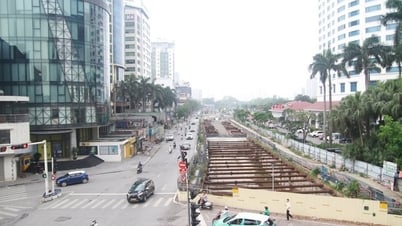




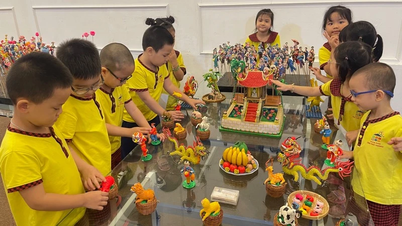


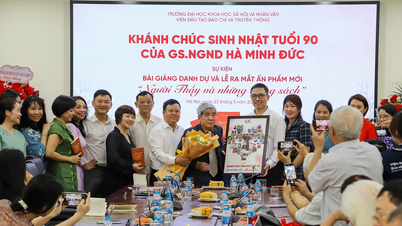























































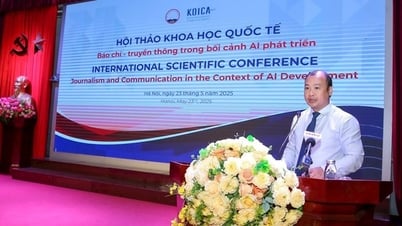





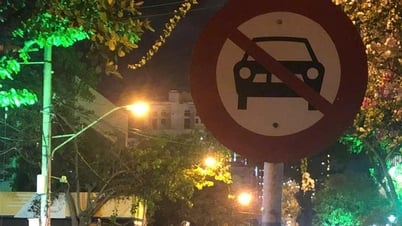

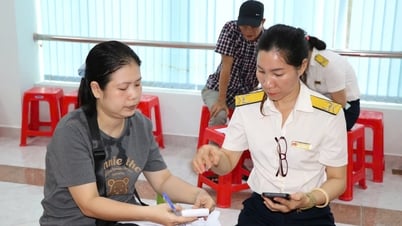














Comment (0)